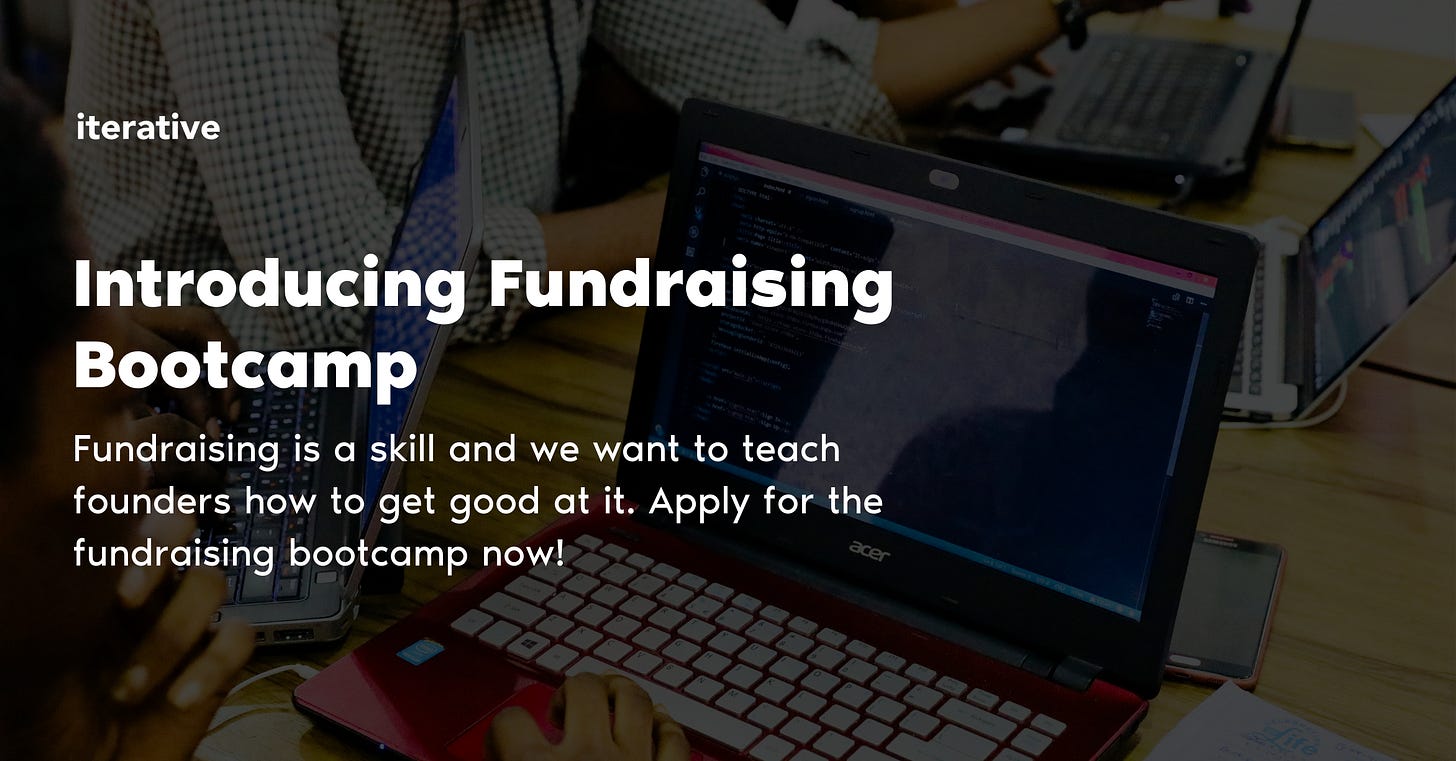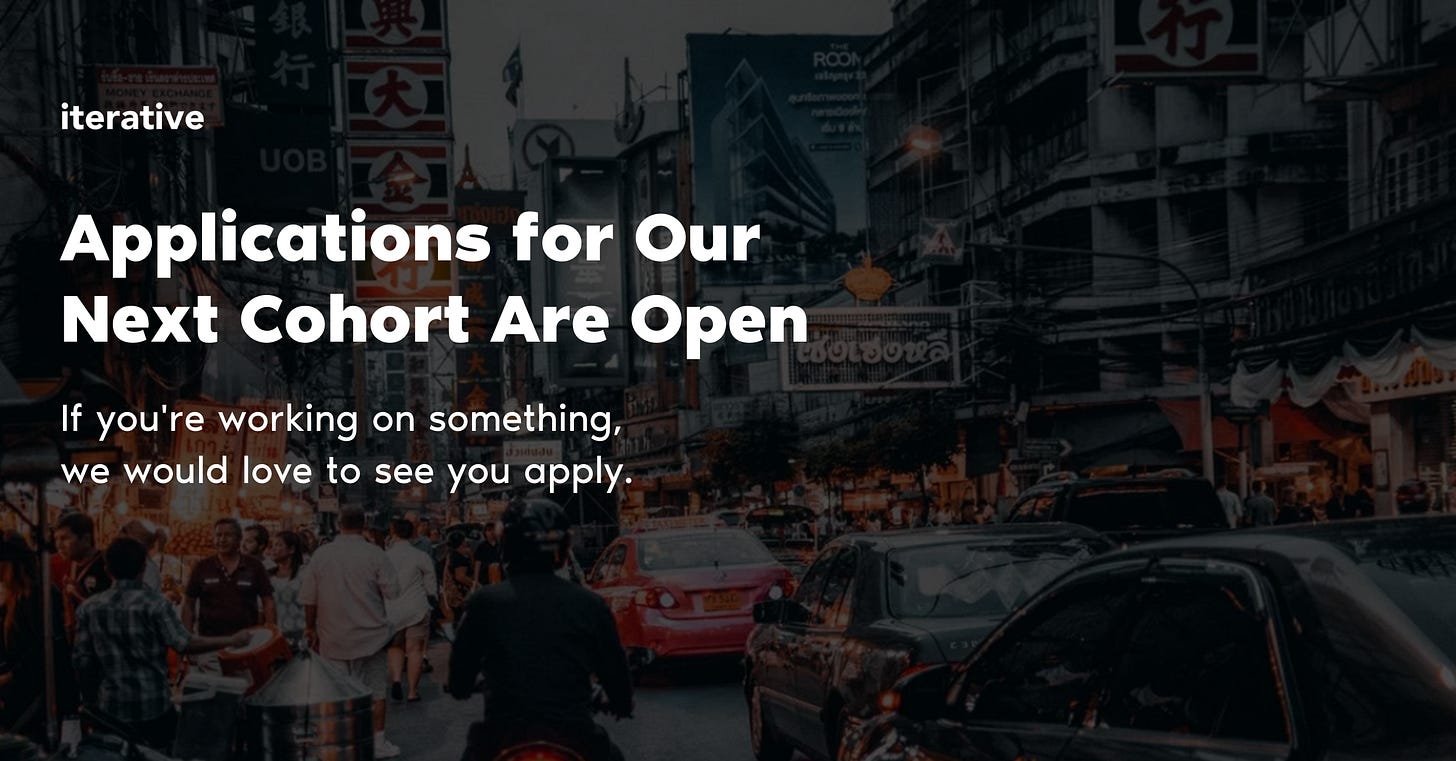Office Hours: How Much Research Is Enough When Meeting an Investor for the First Time?
+ We Launched a Fundraising Bootcamp!
Welcome to Office Hours, our monthly special edition newsletter! Think of this as an async AMA, where Hsu Ken and/or Brian Ma will dive deeper into a top question of the month.
Since it's our first edition, it warrants a bit of a backstory:
Hsu Ken has been running weekly online office hours, where he helps founders with their startups at… well, everything. Some come to him with fundraising questions, others on hiring, go-to-market, scaling — anything that stresses them out as a founder.
What we realised is that a lot of these problems are universal. Different founders come to him with the same questions, looking for the same advice. So we thought, why not share it with a wider audience?
And here we are! If you have any questions you'd like for them to answer, hit reply. We'll answer it in the next Office Hours newsletter.
This month, we got Hsu Ken to answer a classic question on meeting an investor for the first time.
Question of the Month
How much research should I do when I meet an investor for the first time?
Hsu Ken: Here are a couple of things you should know — and why. Knowing these things ahead of time will give you a better sense of how they will approach the call and what they want to talk about. Fortunately, they are all things you can answer by looking at their LinkedIn profile.
Have they been a founder or operator before? In my experience, the conversation tends to be different. With investors who haven’t been a founder or operator, they are drawing from the experience of what’s worked (or didn’t) with their other portfolio companies. With investors who have been a founder or operator, they are drawing from their own experience of what worked or didn’t at their previous company. What they care about and what they’ll ask you will be different as a result.
What did they do before becoming an investor? If you’re a B2B software company and they spent their career in B2B software, you can expect deep domain knowledge about your space and piercing questions. It’s important to know this going in. If you do, my move is to acknowledge their experience, be humble and if/when you are not sure, say you are not sure and ask them what they think.
How long have they been an investor? If they’ve been an investor for a few years, they’ve talked to a lot of founders and probably know what they do and don’t like. If they are a new investor, they’re still learning and the conversation might be more unpredictable.
In addition to learning about the person you are talking to, also get to know their fund. If they’re an angel investor, the same things apply.
What stage do they invest in? Do they invest in your stage or not? If they don’t, then you should think of the call as building a relationship so when you get to that stage, you’ll know them. If they invest at your stage, then obviously you’re trying to get them to invest.
Have they invested in competitive or similar companies? If they’ve invested in a competitive company, you might want to be a little careful. If they’ve invested in a similar company (maybe similar model) then they might understand your business more than the average investor.
Hope this gives you a better understanding of what kind of research you should do - and the depth of it.
On that note, it's a nice segue-way for an exciting announcement…
We Launched a Fundraising Bootcamp
And it's completely free! No fee, no equity.
The bootcamp is four weeks long, designed for early stage startups who have some traction and are looking to fundraise in the next nine months. Here's a quick breakdown of what you'd be going through:
Orientation – The bootcamp starts off with a one hour session, where we cover the same materials as the one we use in our core program. This includes learning how to design pitches and run an effective fundraising process, as well as understanding what investors are really looking for.
Pitch Iterations – You'll spend the first week working on a pitch outline, before creating a pitch deck. Each week, you'll work on an iteration, get feedback from pitch practices and iterate again.
Pitch Practice – Each week, we'll host one hour group sessions where each company will pitch, and get feedback from Hsu Ken and the other founders.
If you'd like to know more, check out our blog here! Do note that spaces are limited, so we encourage for you to apply early if you're interested.
Applications Are Open
In case you missed it, we're already open for applications! Iterative invests up to $500K, and upon admission, we invest the full amount upfront and work with the founders closely for three months.
This will be for our W23 cohort, which will tentatively start early next year. While it feels like there's a long way to go, early applications have a much higher investment rate.



